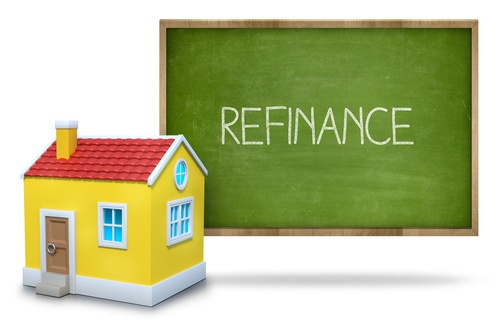7 Signs You Should Refinance Your Mortgage Immediately

HELOC loans, Cash-Out, Streamline, or Rate and Term refinancing, can significantly help you reduce the monthly mortgage payments.
Consequently, saving you thousands of dollars’ worth of interest. Most homeowners, however, aren’t sure when the right time to refinance their mortgage is.
If you are in such a spot, here are seven clear signs that it is time to consider refinancing your home loan.
1. If the interest rates are higher than the current interest rates
Interest rates fluctuate from time to time. Subsequently, if you closed your mortgage at the time when the charge was high, it is likely that your repayments are above the current interest rates.
If that is the case, do not hesitate to find out from financial lenders whether you can refinance your loan so that you get a loan with a lower interest rate.
2. If your home needs repairs or refurbs
In case you are bored with the mundane look of your home, you can consider refinancing from HELOC loans, Cash-out refinancing, or home equity loans.
Most lenders will give you up to 80 percent of your property’s value, for carrying out renovations. The good thing is that the loans have favorable interest rates and repayment periods ranging between five to thirty years.
3. You are about to retire
If you have more than a few years remaining on the mortgage and you are close to retirement, it is prudent to refinance. In such a case, refinancing will help you get a loan with lower interest and payment rates.
Making it comfortable for you to afford the repayments, despite the reduced income.
4. If you have a second mortgage that has a variable rate
Servicing two loans can prove daunting especially if one has a fixed rate and the other a variable one.
For instance, if your first mortgage is at the fixed rate while the HELOC one is variable, the best solution would be to consolidate the two loans into one. If possible, go for refinancing that has one monthly payment.
5. If you want some extra cash
If your mortgage repayments take too much of your income because the interest is high, refinancing can help you solve this problem.
Just look for a lender with lower monthly payments stretched over an extended period. By so doing, you will reduce the burden on your income leaving you with more dispensable income for doing other stuff.
6. If you have an improved credit score
If from the time you closed your original mortgage your credit score has significantly increased from what it was, then, by all means, consider refinancing.
The favorable rating will without a doubt entitle you to higher credit with favorable repayment terms. However, ensure that you pay all your credit balances to avoid ruining your scores.
7. If you wish to pay off a 30-year mortgage
Repaying long-term loans over an extended period ensures that you make relatively small repayments. Nevertheless, in the long run, the interest on these loans are substantial.
If you have such a credit, consider refinancing. Opt for a ten to a fifteen-year mortgage. Even though you will make higher contributions, most of the amount will go towards repaying the principal amount and not interest.
Consequently, you will pay off the loan both quickly and cheaply.
Conclusion
Even though refinancing your mortgage has unique benefits, it comes with cost implications. For instance, there is the closing cost.
For this reason, make sure you go for a refinancing option that will help you make significant savings despite the associated costs.